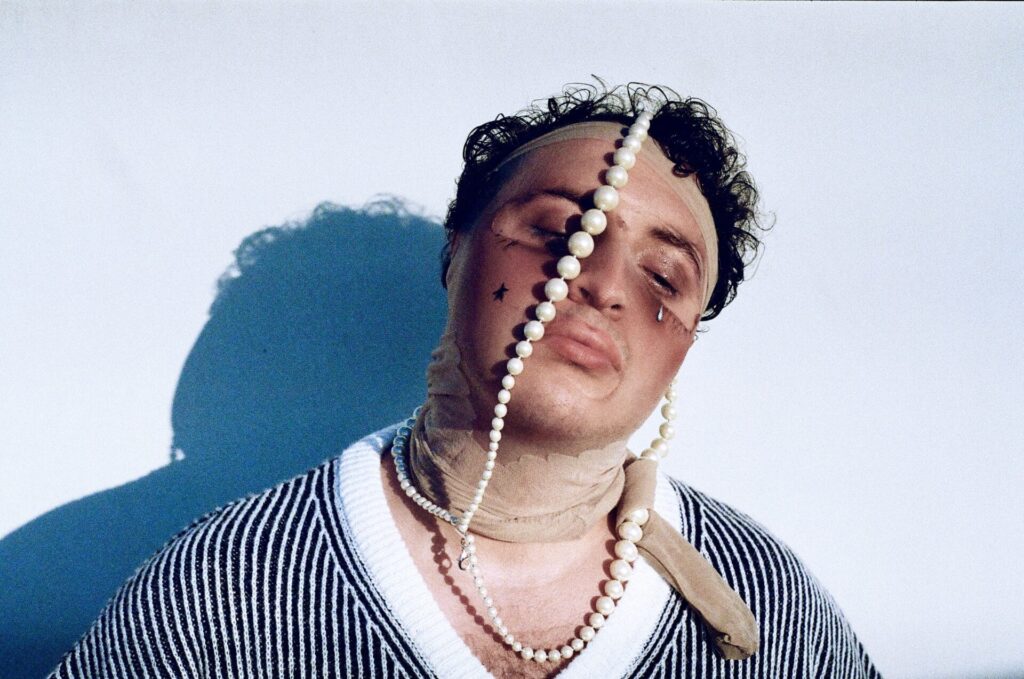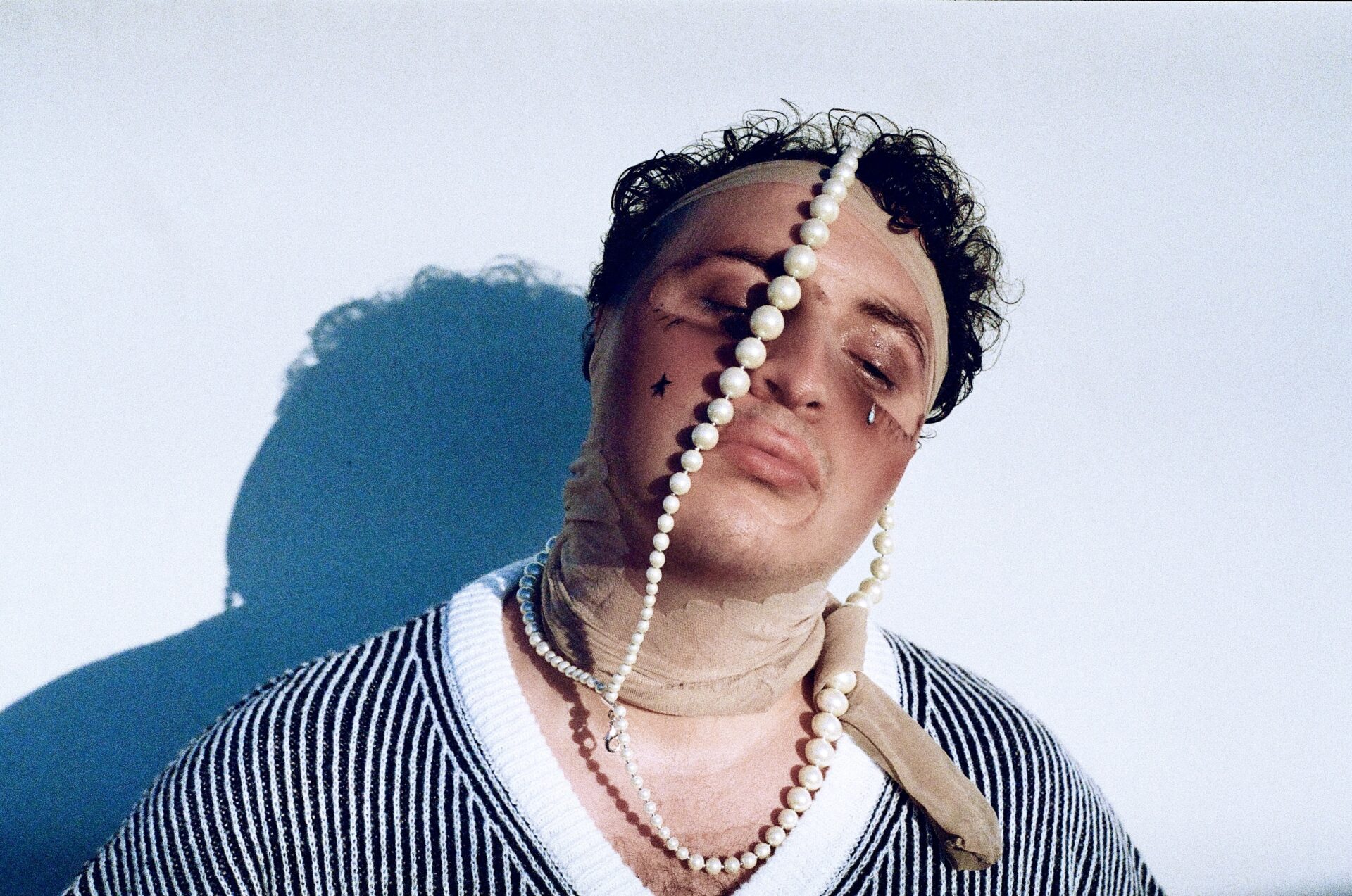Joey Miceli entered the music business at the age of nine and has been rising to fame for over ten years. The Las Vegas-based singer-songwriter is well-known for his introspective, ethereal, and passionate music.
One of Miceli’s most exquisite songs to date is his most recent single, String of Pearls. His vocal performance is both delicate and dynamic as he shares his philosophy of extending grace to those who wrong us. Check out the exclusive interview below:

1. Can you tell us a bit about where you come from and how it all got started?
JOEY MICELI: I’m from Las Vegas and music has been my entire life since I was super young. When I was around five or six, I would become obsessed with songs and rewrite the lyrics; there was something about melody that truly stuck with me and I’d almost worship these songs I had hyper fixated on. Rewriting the lyrics was just like a little challenge for myself and it eventually moved into writing my own songs when I was around eight. That’s when I started taking voice lessons and performing— then I got my first deal at eleven.
2. Did you have any formal training or are you self-taught?
JOEY MICELI: I’ve been training since I was eight. There were definitely ups and downs in terms of persistence with lessons and what not, but I have never stopped performing. I think that is the best you can do when it comes to stamina and vision.
3. Who were your first and strongest musical influences and why the name ‘JOEY MICELI’?
JOEY MICELI: When I was a kid, I didn’t really care for my name and other kids weren’t very nice about it either. I thought it was a bit corny and cringe so once I got started in the industry, I always had the conversation about whether or not an alias would be something worth pursuing. I never really cared enough to go by anything else because I’m super vulnerable in my form of writing, and I’m not trying to play coy or pretend. As for my earliest influences, Michael [Jackson] really reflected my range as a kid and the type of music I loved to sing. And of course there was Bowie, Luther Vandross, Adam Lambert, Billy Idol, Queen, I was really into Escape the Fate because of my brother, Linkin Park, Fleetwood Mac, Miguel, Paramore, Rush, Gaga, I mean there was a lot going on.
4. What do you feel are the key elements in your music that should resonate with listeners, and how would you personally describe your sound?
JOEY MICELI: As I’ve grown up and come to understand my artistry a bit more, I really lean in to my ability to shape shift. Growing up singing so many different types of music, I had to appreciate the meaning of it all, especially as someone who valued lyrics and melody so deeply. I feel that translates well into my writing and ability. Because of that, I don’t choose to define myself to any corner of the industry. A pop star can be global and with that, representative of shifts in culture and modernity. I’ve watched women do this in the industry in order to survive relevancy since I was old enough to comprehend it. I think men in the industry should be held to the same standard and it’s disappointing to watch most never transform.

5. On the contrary, what would you consider a successful, proud or significant point in your life or music career so far?
JOEY MICELI: I’m very proud of what we put out this year and what we have coming next year. And I’m very proud of myself for continuing to make music, and that it’s not in spite of adversity, but in honor of it. My best moments are still to come, but I will say, I’m the most grateful to my family and my collaborators.
6. For most artists, originality is first preceded by a phase of learning and, often, emulating others. What was this like for you? How would you describe your own development as an artist and music maker, and the transition towards your own style, which is known as POP?
JOEY MICELI:
Nothing is new. That’s been a huge conflict within me for a while. I found myself so inspired by these otherworldly icons my entire life, that I always felt I was emulating something they possessed. But as I keep growing and continuing to love art in all forms, I’ve found being inspired is essential. These massive artists are people who live to stay inspired under immense pressure. Paying tribute, learning from other pieces of art, falling in love, it’s all about being moved and moving someone. Where it becomes about you is what you have to say and how you choose to say it.
7. What’s your view on the role and function of music as political, cultural, spiritual, and/or social vehicles – and do you try and affront any of these themes in your work, or are you purely interested in music as an expression of technical artistry, personal narrative, and entertainment?
JOEY MICELI: I think music will always act as a vehicle for all of these things. And I think it’s really up to the artist’s perspective on how they choose to confront certain political or social issues in their work. That is where the how comes in to it all. Something I’ve found myself consistently pulling apart is the reason for masculinity. It’s not that I’m interested in making people feel bad about themselves, I’m more so after self reflection. And it just so happens, in my experience, a lot of men don’t care to reach that territory. That’s what gives my music some context and what made my last full length record so strong with its perspective— what did this simp ass man encounter and believe at his lowest?
8. Do you feel that your music is giving you back just as much fulfillment as the amount of work you are putting into it or are you expecting something more, or different in the future?
JOEY MICELI: I think it finally is starting to. In the many phases of my life thus far, I’ve gone 100% into the projects I’m working on, but now I’m starting to feel I’m making things that will last. I look back on the music I wrote and released at fifteen and laugh. I used to write and record a song and then put it out on Spotify the next day, unmixed, unmastered, and without any second opinion. I wish I had had more patience. However, I do look back on that period of my life with a lot of sadness. A lot of people were very eager to watch me fail and laugh at my tenaciousness. Now I laugh with them, but it is very disappointing to, as I’ve gotten older, witness the age these people were when they were discouraging and discrediting a young kid. Now they all pretend to be artists.
9. Could you describe your creative processes? How do usually start, and go about shaping ideas into a completed song? Do you usually start with a tune, a beat, or a narrative in your head? And do you collaborate with others in this process?
JOEY MICELI: Santino Cardinale, Colby C, and JHype are all my muses. They are the reason I am inspired and still creating. It usually starts with production and then it’s almost like the song comes from somewhere for me to interpret. At least in terms of melody, but I’m always writing lyrics. I get a lot of ideas while I’m driving, which is a bit inconvenient. I really try to lock in on production and what I’m feeling from it or where I’m at in life. Titles usually start the song for me, but I’ve written a lot without a title in mind too, so it really depends on the process and where I’m at conceptually.
10. What has been the most difficult thing you’ve had to endure in your life or music career so far?
JOEY MICELI: I have had a very difficult time processing and accepting grief. I feel it very deeply and sometimes I don’t think my body lets me comprehend it out of a fear of crashing. In the last few years, I’ve lost a lot of people that were very dear to me and I’ve also started to grieve my youth. I just turned 24 and it’s so easy to think “how the hell did I get here already,” but then you get so wrapped up in that feeling, you forget you’re still young. Then in ten years you look back and feel the same because you didn’t appreciate that either. It’s really just cyclical bullshit, but it’s very real to me.
KEEP IN TOUCH:
INSTAGRAM | TWITTER | SPOTIFY | TIKTOK | WEBSITE | YOUTUBE

